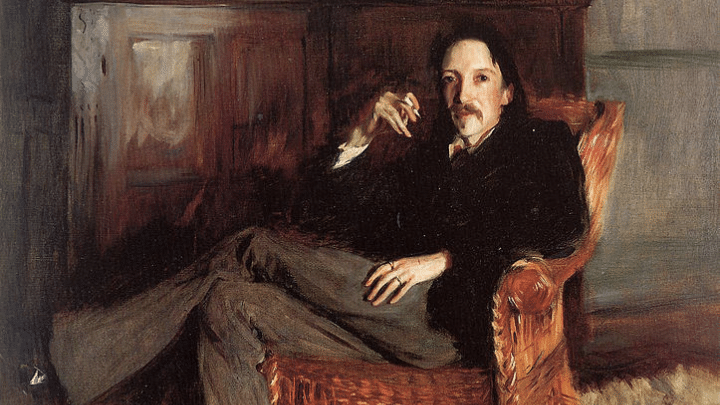10 Best Joseph Conrad Books You Should Read

Joseph Conrad, born Józef Teodor Konrad Korzeniowski in 1857, was a Polish-British writer who is celebrated for his complex narratives and pioneering use of psychological insight in storytelling. Despite English being his third language after Polish and French, Conrad’s mastery of the English novel is a remarkable feat that has influenced many writers and literary scholars.
Conrad’s literary style, rich in symbolism and dense prose, often delves into themes of existentialism, imperialism, and human’s dark psychological nature. His writing has captivated readers across generations, and many of his works are considered classics of Western literature.
His experiences as a sailor and deep understanding of the sea’s enigmatic power are evident throughout his works. Many of his novels and stories are set on ships or in seafaring towns, giving them a distinctive maritime atmosphere. This article explores some of the best Joseph Conrad books that highlight the breadth and depth of his literary genius.
1. Heart of Darkness
“Heart of Darkness” is perhaps Conrad’s most famous work and a foundational text in modernist literature. Published in 1899, it presents a harrowing journey into the African Congo and the human psyche.
The novella is narrated by Charles Marlow, who recounts his voyage up the Congo River to meet the enigmatic ivory trader, Kurtz. Along the way, Marlow uncovers the brutalities of imperialism and the darkness within the human soul. Conrad’s profound commentary on colonialism and human nature continues to resonate with readers and scholars today.
2. Lord Jim
“Lord Jim” is a novel that delves into the life of Jim, a young British seaman who is plagued by a moment of cowardice that has far-reaching consequences. This story explores themes of honour, guilt, redemption, and self-identity.
The novel is structured as a framed narrative, where Marlow (the narrator from “Heart of Darkness”) tells Jim’s story. This adds layers of complexity to the plot, making “Lord Jim” a rich and multifaceted work. Conrad’s portrayal of a flawed hero striving for redemption illustrates his keen insight into human motivation and moral ambiguity.
3. Nostromo
Set in the imaginary South American country of Costaguana, “Nostromo” is a complex political novel that explores the dynamics of power, greed, and revolution.
The titular character, Nostromo, is a charismatic and enigmatic Italian expatriate who becomes embroiled in political intrigue and rebellion. Conrad’s deep exploration of social hierarchy and power dynamics in this fictional nation provides a sweeping canvas for a rich narrative. The novel’s interwoven subplots and varied character perspectives showcase Conrad’s mastery of storytelling.
4. The Secret Agent
Published in 1907, “The Secret Agent” is a dark and intense novel set in London, involving espionage, terrorism, and political intrigue. It is markedly different from Conrad’s maritime works, reflecting his keen interest in social and political issues of the time.
The story revolves around the character of Verloc, a spy, who becomes entangled in a plot to bomb the Greenwich Observatory. Conrad’s portrayal of a dysfunctional family, along with the shadowy world of anarchist politics, creates a gripping and thought-provoking read. The novel’s critique of political extremism remains relevant to contemporary audiences.
5. Under Western Eyes
“Under Western Eyes” takes place in both St. Petersburg, Russia, and Geneva, Switzerland. It explores themes of revolution, guilt, and the individual’s place within society.
The novel’s protagonist, Razumov, becomes unwillingly involved in the assassination of a government official, leading him on a path of self-discovery and moral dilemma. Conrad’s depiction of Russian society, political turmoil, and human consciousness makes “Under Western Eyes” a profound and complex work. It’s an indispensable addition to the canon of political fiction.
6. Victory
“Victory” is a psychological novel that explores love, isolation, and the human condition. Set in the remote Indonesian islands, it follows the life of Axel Heyst, a reclusive and enigmatic man who becomes involved in a romantic and dangerous affair.
Heyst’s detachment from society and his deep introspection make for a compelling character study. Conrad’s exploration of existential themes and human vulnerability adds depth to the narrative, making “Victory” a unique and captivating read.
7. The Nigger of the ‘Narcissus’
“The Nigger of the ‘Narcissus'” is a seafaring novel that focuses on the crew of the Narcissus as they undertake a voyage from Bombay to London. The novel delves into maritime life, the relationship between sailors, and the communal struggle against the sea.
Conrad’s vivid portrayal of the sea and the men who work on it offers an immersive reading experience. The novel’s universal themes of solidarity, struggle, and human resilience resonate with readers across different cultural contexts.
8. The Shadow-Line
“The Shadow-Line” is a semi-autobiographical novel based on Conrad’s own experiences as a young ship’s captain. It’s a coming-of-age story that explores the transition from youth to adulthood.
The protagonist faces both natural and supernatural challenges on his first command, symbolizing the existential struggle of becoming a mature individual. Conrad’s intense psychological insight and his ability to capture the atmospheric elements of the sea make “The Shadow-Line” an engaging and introspective work.
9. Typhoon
“Typhoon” is a thrilling short novel that describes the experience of a steamship’s crew as they battle a ferocious storm in the Western Pacific.
Captain MacWhirr’s stoic and unemotional leadership in the face of nature’s fury forms the core of this gripping tale. Conrad’s vivid descriptions of the storm and his exploration of human courage and perseverance make “Typhoon” a must-read for fans of maritime literature.
10. The Secret Sharer
In “The Secret Sharer,” Conrad presents a psychological drama set at sea, revolving around a young captain who shelters a fugitive onboard his ship.
The relationship between the captain and the mysterious fugitive, Leggatt, delves into themes of identity, duality, and moral ambiguity. This short story’s symbolism and psychological depth make it an engaging and thought-provoking read.
Conclusion
Joseph Conrad’s works have shaped modern literature with their intricate plots, profound themes, and psychological insight. His maritime experiences lent authenticity to his seafaring novels, while his interest in political and social issues infused his writings with complexity and relevance. The books explored in this article represent some of the finest works in Conrad’s rich literary legacy, offering readers a glimpse into the human soul, society’s contradictions, and the relentless power of the natural world. His writings continue to be studied, admired, and enjoyed, reflecting a timeless literary brilliance that transcends linguistic and cultural barriers.






